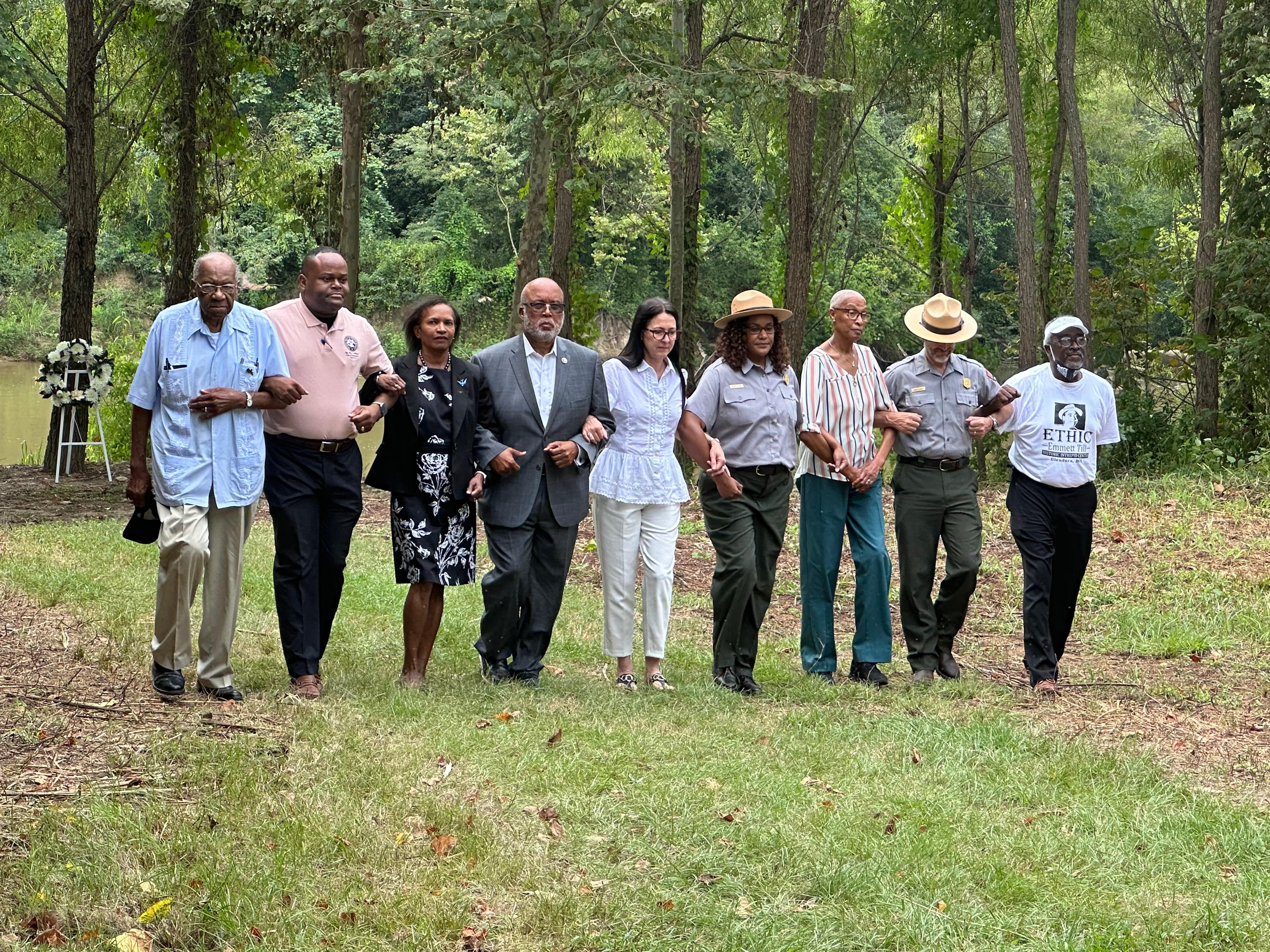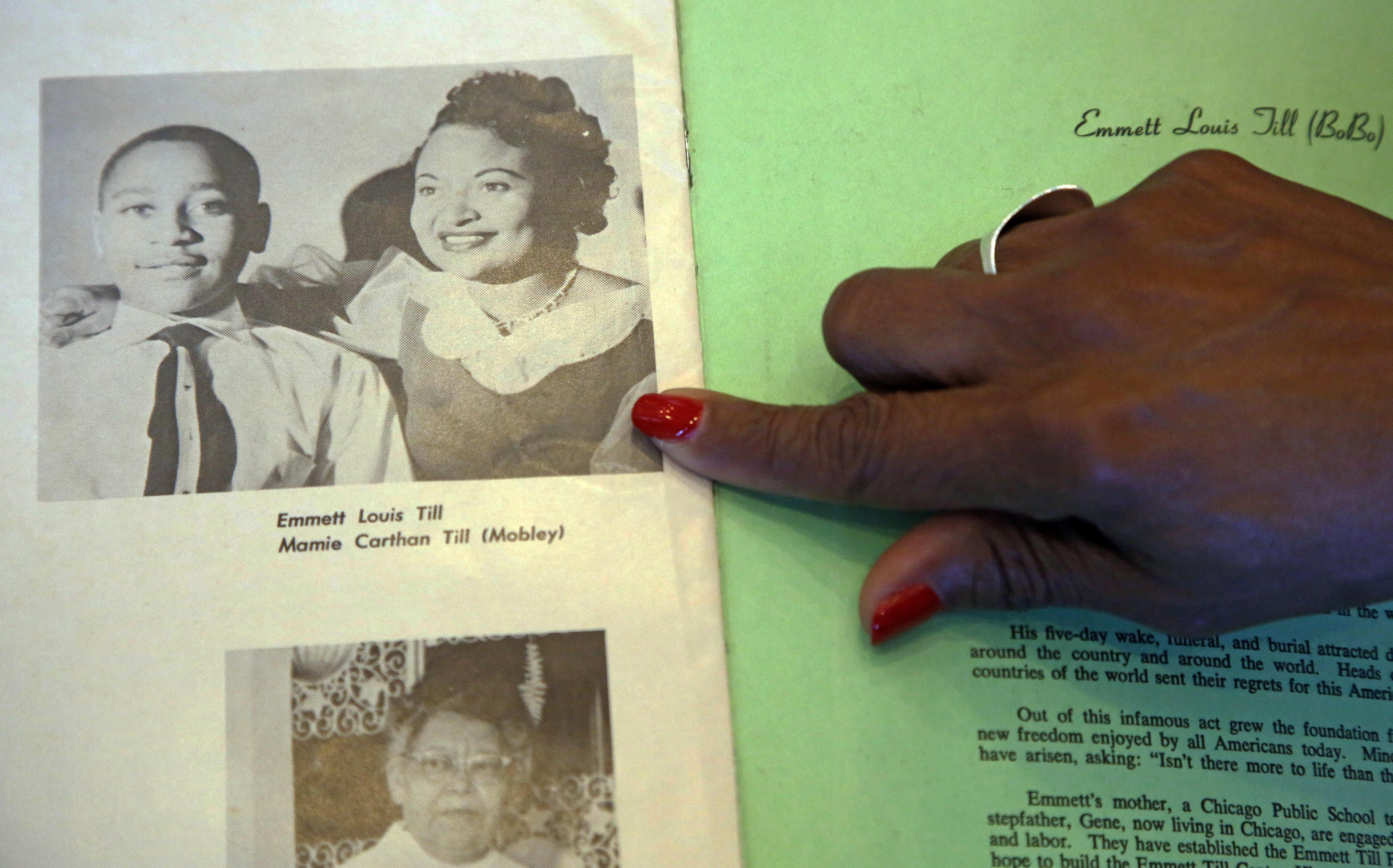“Mamie and Rosa Parks became friends later, and when they became friends, Rosa Parks told Mamie, ‘When they told me to get out of the seat, I thought of the courage that you displayed by putting your son's body on display before the entire world and I think I should have that same kind of courage,’’’ Small said.
The site hasn't always been treated with reverence. Memorial signs have been thrown into the river and two replacements were riddled with bullet holes. A bulletproof sign with motion sensor cameras was installed in 2019.
Congressman Bennie Thompson represents the Mississippi Delta. He says it is important for stories like Till's to be told honestly.
“We're here so that we can bring people to this area and talk about the dastardly deed that young Emmett had to endure at the hands of his killers,” Thompson said. “...This happened. This is history. And our commitment should be that it never happened again.”
Graball Landing is one of two sites in Mississippi plus a third in Chicago that make up the Emmett Till and Mamie Till-Mobley National Monument.
Reena Evers, the daughter of Mississippi civil rights icons Medgar Evers and Myrlie Evers-Williams, was also at the event. Evers said families like hers and the Till's, ones forever changed because of racist violence, is not a club you want to join. But that the nation being forced to reckon with these horrific acts and confront their continued relevance all these years is justice in a sense.
“It is imperative to understand how to connect the dots,” Evers said. “The dots are not just one in Mississippi and one in Chicago, it connected all the way through. It connects in Florida, as much as they don't want to hear that.”





